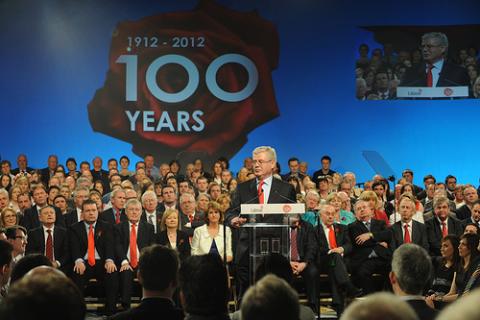Labour's fears of being 'unelectable' will soon be realised

Had Labour remained in opposition, they could have increased their political capital, rather than destroying it. By Philip O'Connor.
Ever since they abandoned any pretence of socialism or social democracy to go into government with Fine Gael, I've found cause to be extremely critical of Ireland's Labour party. Naturally enough many members have contacted me to express their displeasure, via social media and otherwise.
But rather than clarifying their position, their communications to me throw up a whole new set of worrisome issues, not least regarding the party's view of itself.
One of the recurring themes has been their (erroneous) assumption that my sympathies must lie with some of the hard-left or communist candidates or parties; traits which make them - in Labour parlance - "unelectable."
I thought it an odd word for a Labour member to use, as surely the paty should be about bringing the Irish electorate around to its way of thinking, rather than just becoming a diet version of Fianna Fáil or Fine Gael.
I found it stranger still that another Labour member would use exactly the same expression - "unelectable" - in the same context shortly afterwards. Clearly, it is something of a buzzword in the party, and conscious efforts are being made not to do anything that might alienate voters, or otherwise make Labour "unelectable".
Amazingly, one member didn't seem to be at all shy about his stance, scoffing that James Connolly was "unelectable" in both the US and Scotland during his political career. Whilst that may be true, it is odd that such a seminal figure in the Irish Labour movement would be scoffed at for his electoral record in such a manner.
The problem for Labour is that they were elected on a mandate far more radical than that which they now want to be identified with, and which can be encapsulated by the bravado of the finger-wagging "Labour's way or Frankfurt's way" statement made by Eamon Gilmore.
Since abandoning such relatively radical rhetoric, Labour have suffered an alarming slide in the opinion polls, and now it is they rather than Fianna Fáil who would have the most to fear from a snap general election.
The reason for this is their inability to differentiate themselves from their Fine Gael colleagues in government. Dominc Hannigan is the latest in a long line of Labour figures to trot out the usual lines about renegotiating the interest rate and how austerity is the only show in town. His words echoed perfectly those of his Fine Gael colleagues.
But not too long ago (in June 2010 in fact), he was bemoaning the bailing-out of the banks and wondering if propping up Anglo wasn't simply throwing good money after bad.
Fast-forward to Thursday night's Tonight with Vincent Browne and he was avoiding any questions about burning bondholders and simply restating the received wisdom handed down from the Fine Gael side of the cabinet table.
I wrote recently that Labour's abandoning of their election promises and their core voters could see them suffer the same fate as the Green party, and the recent Behaviour and Attitudes poll published in last week's Sunday Times bears that out.
From "Gilmore for Taoiseach" and 17% support in February 2011, Labour have suffered a catastrophic drop to 7% in the opinion polls - a drop of some 60%.
They will of course point to the fact that they have been part of a government that has administered some exceedingly harsh medicine since their election, and they would be entirely right in blaming the slide in their support on this factor.
But Fine Gael have only suffered a 4% drop in that time, despite being the architects of much of the misery foisted on the Irish people, both in terms of the troika deal and their ideological opposition to state intervention and ownership.
Labour's primary problem is not that it has delivered austerity; it is that they have delivered austerity having essentially promised not to do so in their election manifesto.
They promised among other things in that manifesto that the burden would be shared by the bondholders, who only last week received another €1.5 billion for their unsecured AIB bonds.
They may decry the socialist wing of the party as unappealing to Ireland's vast middle ground, but by ignoring and abandoning their core working class vote they have ironically ended up making themselves "unelectable".
Had they remained in opposition they would have been by far the largest party on the other side of the floor, and given the opportunities provided by this inept government they could have grown, rather than decreased, their political capital.
But as often in Irish politics, the short-term view prevailed and they grabbed the chance of power when it was offered. With unpopular household and water charges under their belt, and a difficult referendum looming, not to mention the future of the European project now hanging in the balance, their term in office may not last much longer.
And with their electoral support ebbing away, they might have plenty of time to ponder how they made themselves "unelectable" when they resume their place on the opposition benches. {jathumbnailoff}
Image top: The Labour Party.
